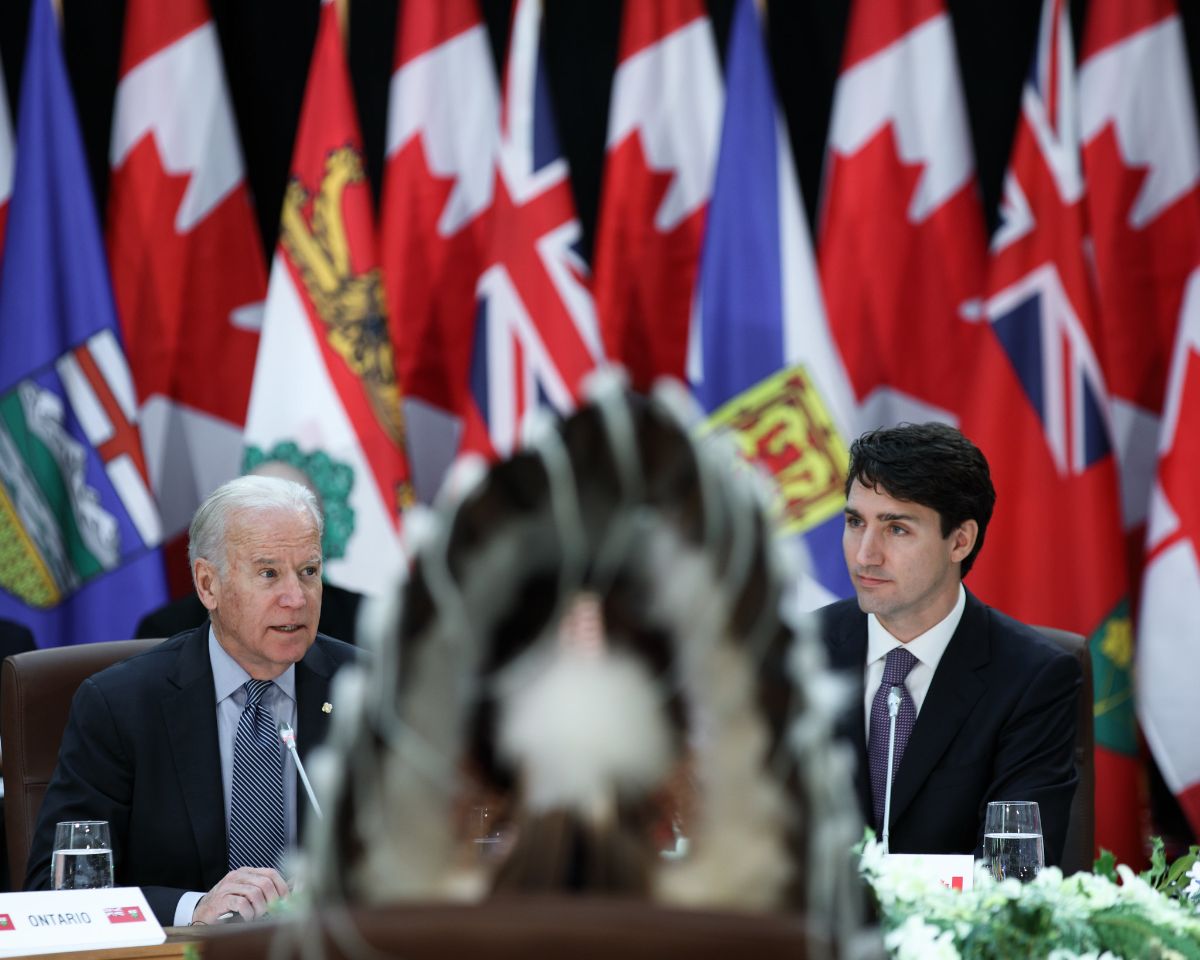Then-Vice President Joe Biden addresses a First Nations meeting in Ottawa alongside Canadian Prime Minister Justin Trudeau on Dec. 9, 2016. (Photo: Justin Trudeau / Flickr)
Welcome to Factal Forecast, a look at the week’s biggest stories and what they mean from the editors at Factal. We publish our forward-looking note each Thursday to help you get a jump-start on the week ahead. You can subscribe for free.
A look ahead:
Nov. 18/ “Three Amigos” summit: U.S. President Joe Biden, Canadian Prime Minister Justin Trudeau and Mexican President Andrés Manuel López Obrador will sit down Thursday in Washington, D.C. for a
- What’s happened so far: The election of former President Donald Trump in 2016 strained the relationship between the three North American countries in ways that haven’t been seen in generations. During his tenure, Trump raised issues with the North American Free Trade Agreement and border security. He also never convened or agreed to an official summit with his counterparts. After the 2020 election, both Canada and Mexico congratulated Biden on his win and promised to work together. The Biden presidency has come with its own set of challenges for both nations, though, including the pandemic and climate change.
- The impact: Biden’s focus on climate change initiatives included the shut down of the Keystone XL pipeline, angering Canada’s oil producers. He has also been slow to move on some immigration issues, forcing Mexico to house people trying to get into the United States. All three leaders are hoping to achieve tangible results at the summit, especially after the Trump administration led to chaotic policy decisions.

Nov. 21/ Chilean general election: Chile will hold its most crucial elections in recent history Sunday, in what will be a polarized clash between far-right and left candidates.
- What’s happened so far: Sunday’s election will be the first since the 2019 protests over inequality, which killed dozens of people and led to an agreement to hold a national referendum aimed at rewriting the constitution. Despite such progress over the last two years, including the election of a majority leftwing convention to replace the constitution, far-right candidate José Antonio Kast recently surged ahead of the presidential race in opinion polls. Left-wing candidate and former student leader Gabriel Boric remains close behind. Rising fears over migration and public security are partially responsible for Kast’s growing popularity.
- The impact: Voters will not only pick the next president but also renew a good part of the Congress. The race seems concentrated between Boric, who offers a vast agenda of changes in line with the new constitution, and Kast, who campaigned on “order and stability” after the 2019 protests. The vote will be critical to the future of social reforms and the mining sector in particular, with a controversial mining royalty bill likely to hike tariffs if approved. The polarized vote follows contested elections in neighboring countries, such as President Pedro Castillo‘s recent win in Peru.
Nov. 21/ Venezuela election: Venezuelans will vote Sunday to elect regional and municipal leaders nationwide with the participation of the opposition for the first time since 2017.
- What’s happened so far: Years of escalating tensions between the opposition and President Nicolás Maduro’s government reached a new peak in 2019 after Juan Guaidó proclaimed himself interim president, and this week Venezuela will hold municipal and regional elections with the participation of the opposition block. The group announced in September that they would participate in Sunday’s vote after three years of absence — a boycott to denounce “irregularities” in the handling of elections. Despite reservations over the transparency of the vote, the opposition is trying to regain political relevance in Venezuelan institutions. For the first time in 15 years, a team of EU observers will oversee the campaign. Small delegations from the U.N. and the Carter Center will also join the effort.
- The impact: More than 3,000 official positions will be renewed in this vote, including governors, mayors, councillors and lawmakers. The elections will be overseen in a highly militarized environment with more than 350 troops deployed to guarantee security Sunday. While it is unclear whether the opposition will be able to harvest enough support in the polls, the success of this election in terms of democratic standards could be a first step toward a presidential race with guarantees in a country marked by decades of power struggle.
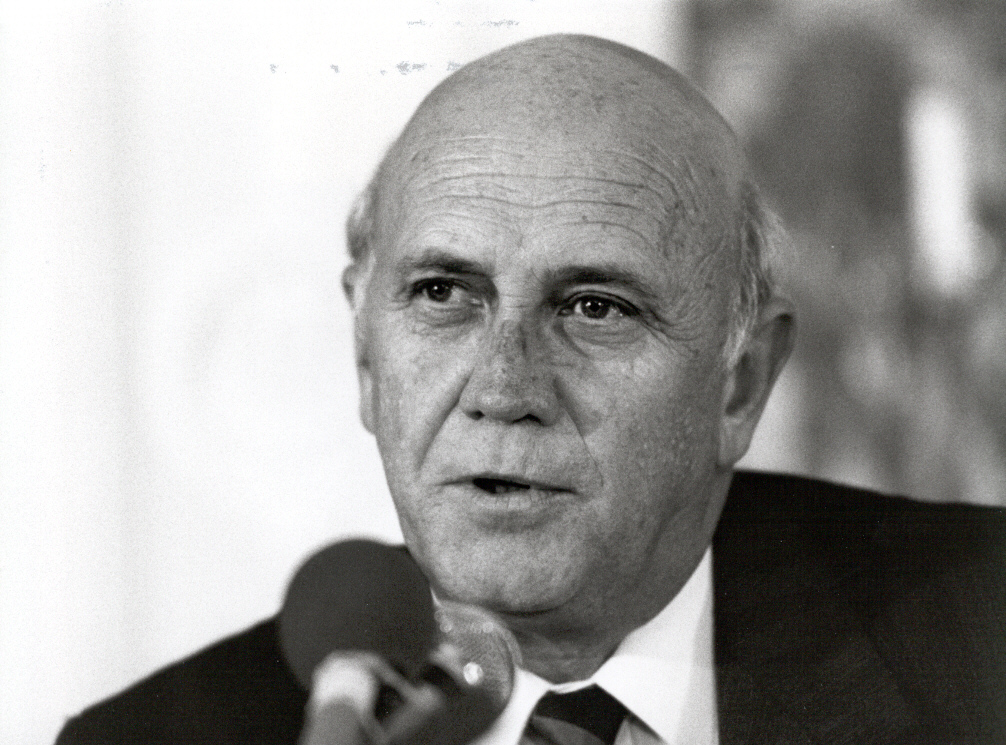
(Photo: Library Am Guisanplatz, Collection Rutishauser)
Nov. 21/ FW de Klerk funeral: South Africa’s final president under apartheid, Frederik Willem (FW) de Klerk, will be cremated in a private ceremony Sunday, a move which will assuage fears that a state funeral could prompt demonstrations over his complex legacy.
- What’s happened so far: De Klerk paved the way to end apartheid on Feb. 8, 1990, when he announced the end of a ban on the African National Congress party and ordered Nelson Mandela’s unconditional release. De Klerk was jointly awarded the Nobel Peace Prize with Mandela in 1993 in recognition of his work to end South Africa’s segregationist system. He died on Nov. 11 at age 85. In a video released posthumously by his foundation, de Klerk apologized for the “pain, hurt, indignity and damage” that apartheid caused to South Africans of color and described the policy as “morally unjustifiable.”
- The impact: De Klerk is a divisive figure in South Africa, both for the country’s Black population who accuse him of not having done enough to curb violence in the lead-up to the 1994 election, and for right-wing Afrikaners who call him a traitor for dismantling the system of white supremacy. The Nelson Mandela Foundation said De Klerk’s legacy is “an uneven one.” South Africa’s incumbent government said a state memorial service for de Klerk will be held at an unspecified date.
Nov. 22/ 44th Canadian Parliament opens: The first session of Canada’s 44th Parliament is scheduled to open Monday. It will be the first time the body has met since Prime Minister Trudeau won a third term in an election that also saw his Liberal Party fail to secure an outright majority.
- What’s happened so far: Despite only procuring a minority win, Trudeau said voters gave the government a mandate to “move even stronger, even faster on the things that Canadians really want.” Accordingly, Trudeau’s Liberals are expected to move quickly in the early days of the new session on an “aggressive agenda,” introducing or re-introducing at least eight bills. Lawmakers are also working on legislation dealing with emergency aid benefits related to the coronavirus pandemic.
- The impact: Trudeau’s Liberal Party campaigned on a 100-day agenda which is already creating challenges. When the 100 days are up on Feb. 3, they’ll have only had 24 sitting days. The upcoming session will also be the first to include a new ministry focused on mental health and addictions. While few details are available about the new ministry’s agenda, it is expected to bring more resources to issues like the overdose crisis and pandemic-related mental health concerns.
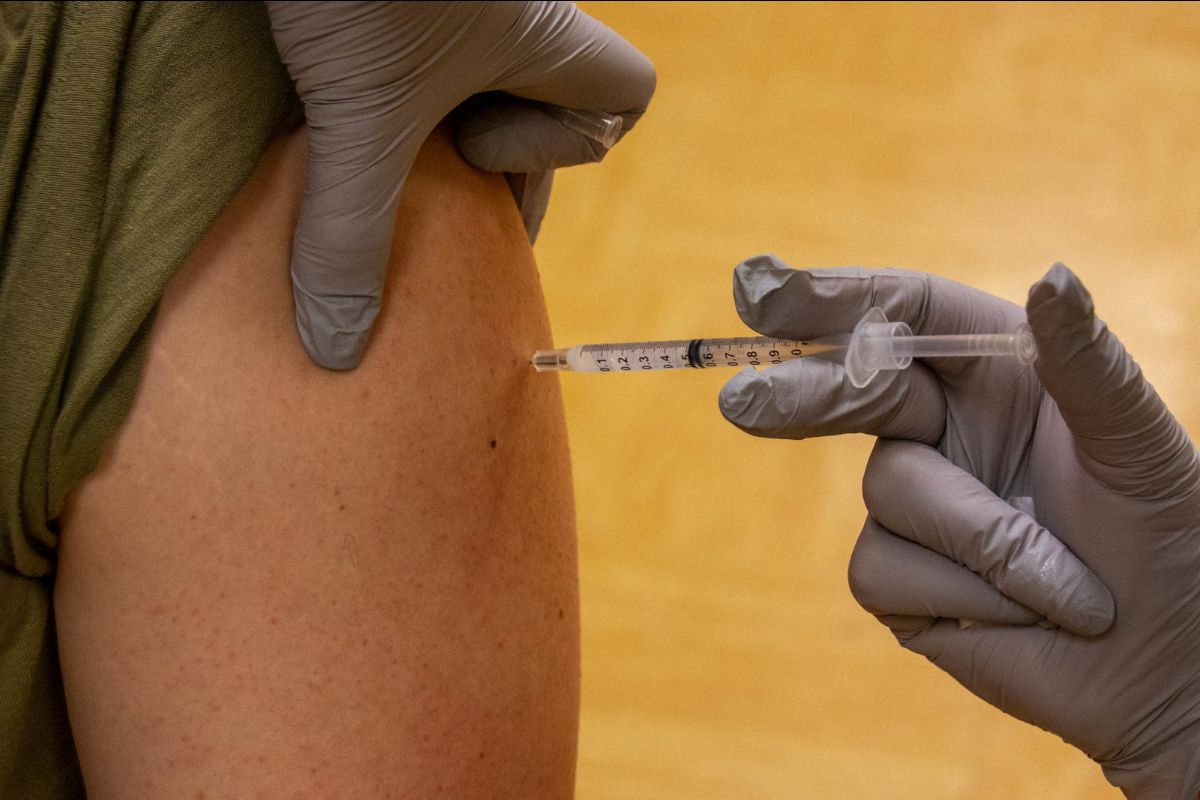
(Photo: Kentucky Army National Guard / Sgt. Matt Damon)
Nov. 22/ U.S. federal vaccine mandate deadline: An order by President Joe Biden’s administration that requires all federal employees to be fully vaccinated against coronavirus goes into effect Monday.
- What’s happened so far: Biden announced in September that all federal employees will be required to be fully vaccinated for coronavirus by Nov. 22 or face disciplinary action. Under this mandate, federal workers need to have received their second dose of Pfizer, Moderna or Astrazeneca’s coronavirus vaccine, or a single dose of the Johnson & Johnson vaccine, by Nov. 8 to be considered fully vaccinated. The mandate comes into effect amid low vaccination numbers nationwide, with just more than 59 percent of Americans fully vaccinated.
- Impact: The vaccine mandate is facing several legal challenges from federal employees and contractors, and a union representing more than 700,000 government employees is pushing for the Biden administration to postpone the Nov. 22 deadline for federal employees to match a newly extended Jan. 4 date for contractors. In a separate case, the Occupational Safety and Health Administration suspended enforcement of a similar mandate for large private businesses this week.
Nov. 23/ Interpol General Assembly in Turkey: Senior police and security officials from around the globe will convene in Istanbul on Tuesday for the 89th Interpol General Assembly.
- What’s happened so far: Initially scheduled to be held in the United Arab Emirates in December 2020, the annual meeting was postponed after the executive committee determined that a virtual meeting would be “materially impossible.” Though Turkey is a founding members of Interpol, its deputy foreign minister said the country’s relations with organization “are not at the desired level,” citing the agency’s reluctance to cooperate after a 2016 coup attempt. As the host of the assembly, Turkey now hopes to gain “international visibility in the fight against global terrorism and cross-border crime.”
- The impact: The two-day meeting this year will feature the election of a majority of Interpol’s executive committee, including a new president to replace South Korea’s Kim Jong Yang. The organization will also elect seven new members of the Commission for the Control of Interpol’s Files. A senior Chinese official’s interest in being elected to the Interpol’s executive committee has sparked international concerns of possible misuse by the country to track overseas dissidents.
Nov. 23/ South Australia to ease border restrictions: South Australia is set to reopen its border Tuesday — enacting new guidelines around quarantine and testing requirements.
- What’s happened so far: State authorities rolled out rules outlining the changing definitions of close contacts and a new lower-risk category casual contacts — when someone has been in the same setting as a coronavirus-positive person but has not had more than 15 minutes of face-to-face contact with them. Those who come into contact with a coronavirus case will still need to quarantine when traveling into South Australia, but the length of isolation period will depend on the nature of the contact and vaccination status. Mandatory quarantine will also apply for individuals who recently visited an area with active coronavirus and low vaccination rates.
- The impact: Along with reopening the border, South Australians will also no longer face the threat of a statewide lockdown, which has been the nation’s preferred strategy until recent months and kept infection rates low but also drew protests from residents. Despite the new rules, there are still few details around coronavirus management plans in schools and quarantine requirements for children under age 12 who are still not eligible to be vaccinated.
Nov. 24/ Israel’s Gantz visits Morocco: Israeli Defense Minister Benny Gantz will travel to Morocco on Wednesday to sign security-cooperation agreements, reflecting the strengthening ties between the two countries a year into normalizing their relationship.
- What’s happened so far: Israel and Morocco have been slowly building connections since the October 2020 agreement that saw Morocco agree to a U.S.-brokered deal to recognize the Jewish nation in exchange for the United States recognizing Moroccan sovereignty over the disputed Western Sahara region. In addition to increased diplomatic contacts, the past year has seen the start of direct flights between the two nations and increased bilateral trade.
- The impact: Gantz’ visit will mark the second high-level meeting between officials from both sides since the signing of the normalization agreement. In August, Israeli Foreign Minister Yair Lapid traveled to Morocco to announce the formation of its first diplomatic mission ahead of expected opening of embassies. Israel’s growing ties with Arab countries continue to reduce leverage of Palestinians trying to gain statehood amid Israeli occupation and expansion of settlements that are at the center of decades of armed conflict in the region.
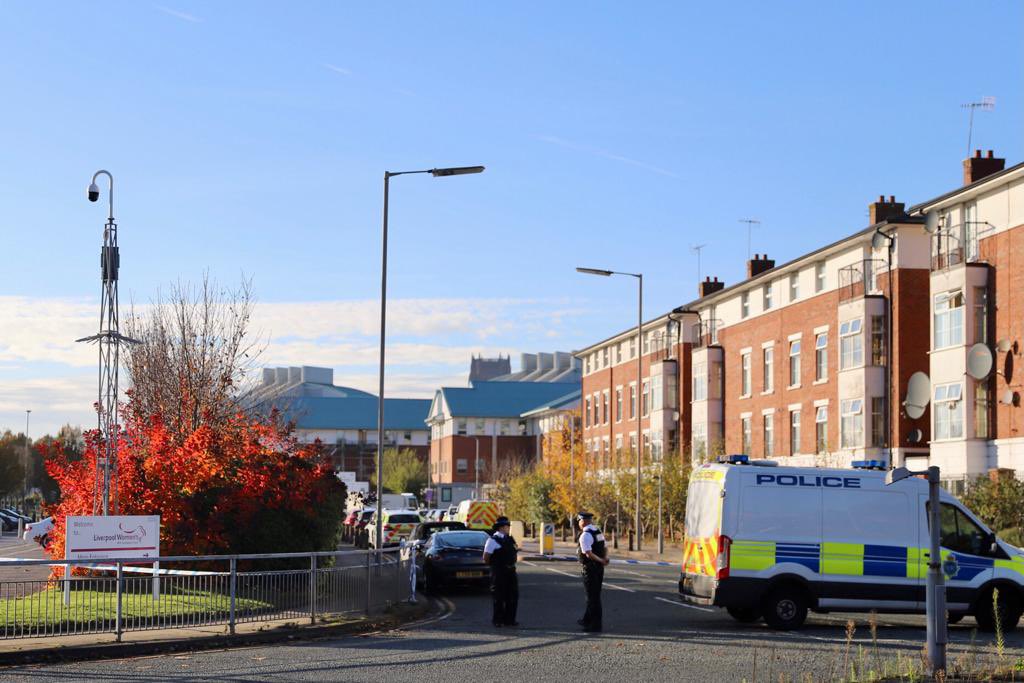
What else matters:
U.K. terror probe: The United Kingdom’s terror threat level has been raised from “substantial” to “severe,” meaning an attack is considered highly likely following an explosion outside the Liverpool Women’s Hospital on Sunday. Police believe the suspect, identified as 32-year-old Emad Al Swealmeen, died when a homemade IED exploded in the back of a taxi outside the building. Security Minister Damian Hinds told the BBC that investigations into whether he acted alone are ongoing. Four men detained in the Liverpool area Sunday and Monday were questioned by police and released without charge.
- Watch for: Security services consider the Liverpool attack to be the second terrorist incident in a month, coming several weeks after the killing of MP Sir David Amess at a constituency surgery in Leigh-on-Sea, Essex. A 25-year-old man was charged with his murder and the preparation of terrorist acts. Metropolitan Police Commissioner Cressida Dick warned Londoners in late October to be alert for attacks over the holidays, adding that counter-terrorism investigations across the U.K. remain at record levels, with more than 800 live investigations and 31 foiled plots since 2017. Five attacks in 2017 in London and Manchester killed more than 30 people — the deadliest series of Islamist attacks since the 2005 suicide bombings on London’s transport network that killed 52 people.
Armenia-Azerbaijan tensions: Weeks of simmering low-level tensions erupted this week with Armenia and Azerbaijan engaging in the most intense fighting since the brutal 44-day war fought last fall primarily over the disputed Nagorno-Karabakh region. Intense clashes broke out predominantly in the vicinity of disputed Kalbajar and other areas along the eastern line of contact. Casualties and prisoners have been reported on both sides, and the Armenian armed forces confirmed that Azeri forces took two combat posts, all indicating a significant escalation in hostilities that had been relatively frozen for the past year.
- Watch for: Given the extreme intensity of last fall’s war and corresponding loss of life, reignited tensions along the largely disputed line of contact between Baku and Yerevan present a pressing challenge. Armenia has already asked Russia, who carries out peacekeeping missions in parts of Nagorno-Karabakh and who is a close ally of Yerevan, for assistance. Baku, meanwhile, reached out to its chief international benefactors, such as Turkey, following the flareup. If reports of prisoners are accurate, a prisoner exchange presents a possible path toward de-escalation, though the situation remains tense and bears monitoring.
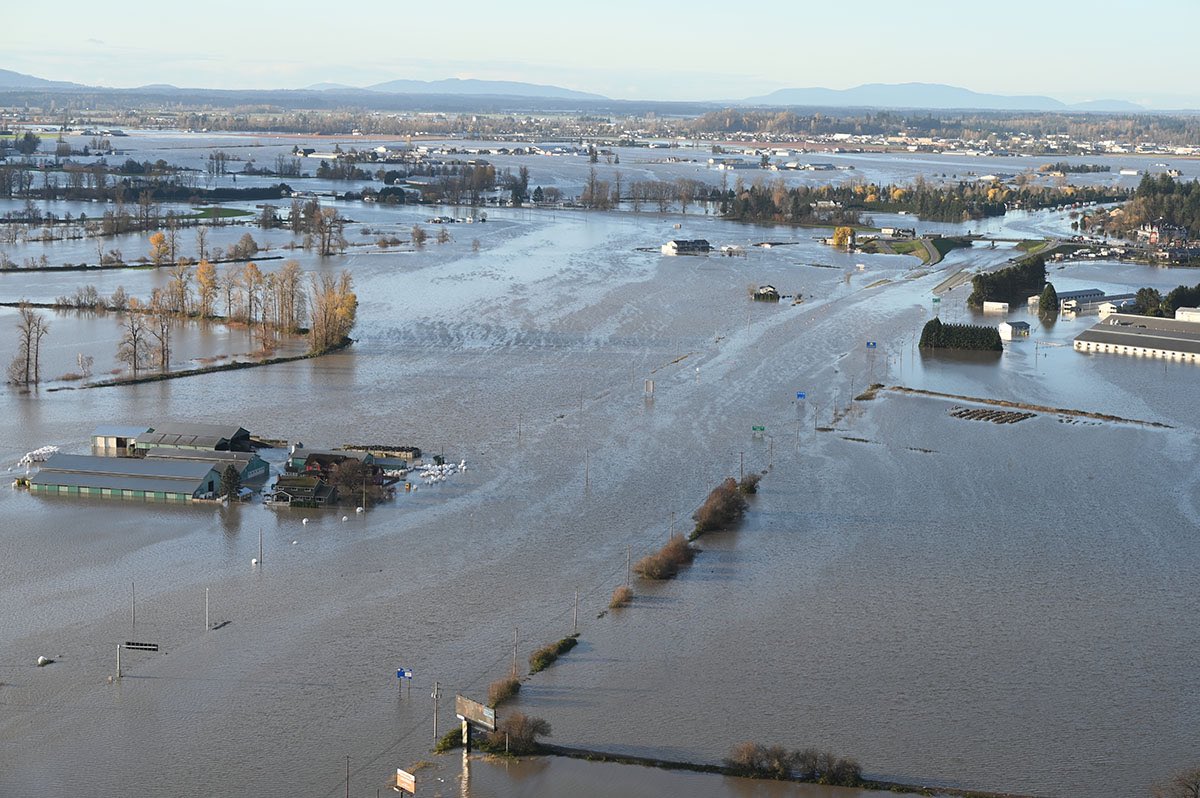
Pacific Northwest storm aftermath: Cleanup efforts are underway across northwest Washington state and southern British Columbia, Canada, following several days of heavy rainfall that triggered widespread flooding and landslides across the region, and high winds that left hundreds of thousands of people in the dark. At least one person was killed and two others are believed missing following a mudslide Monday near Lillooet, B.C., while a Whatcom County, Wash., man is unaccounted for after being swept away by floodwaters Monday morning.
- Watch for: Several major roadways and railways were damaged or cut off entirely by rising floodwaters in the wake of the “atmospheric river” that soaked the region over the weekend. Experts say damage will only further stress an already strained supply chain, at a time when farmers in Western Canada are shipping crops to the coast for export. Meanwhile, thousands of residents forced from their homes due to flooding will likely be displaced for weeks. The city of Merritt, B.C., (population 7,000), expects an evacuation order that went into effect Monday to remain in place for more than a week after the failure of its wastewater treatment facility, while more than 1,200 people remained stuck in Hope, B.C., on Tuesday afternoon after all routes out of the town were rendered impassable.
Extended outlook: What’s on our radar in the coming weeks
Nov. 18: “Three Amigos” summit in Washington, D.C.; Nigeria railway strike; Iraq begins evacuating nationals from Belarus; new coronavirus restrictions in Jamaica
Nov. 19: CDC advisers meet to discuss coronavirus vaccine boosters
Nov. 21: Chilean general election to elect a new president and National Congress; Venezuelan regional elections
Nov. 22: Deadline for U.S. federal employees to be fully vaccinated; 44th Canadian Parliament opens
Nov. 23: South Australia will ease border restrictions for double-vaccinated people; 89th General Assembly of Interpol in Istanbul
Nov. 24: Abu Dhabi crown prince visits Turkey; Israeli defense minister visits Turkey
Nov. 25: U.S. Thanksgiving
Nov. 28: Honduran general election; Hanukkah begins
Nov. 29: Opening statements in Ghislaine Maxwell trial; Singapore launches vaccinated travel lanes with India and Indonesia; indirect talks between U.S. and Iran resume
Nov. 30: Volcanic eruption simulation in Cape Verde; verdict in Aung San Suu Kyi trial
Dec. 1: SCOTUS hears arguments in challenge to Mississippi abortion law; 2021 FIFA Arab Cup
Dec. 4: Gambian presidential election; French political party Les Republicans will nominate candidate for 2022 presidential election
Dec. 18: Taiwan referendum
Dec. 19: Hong Kong legislative election
Dec. 20: Syria talks in Nur-Sultan, Kazakhstan

